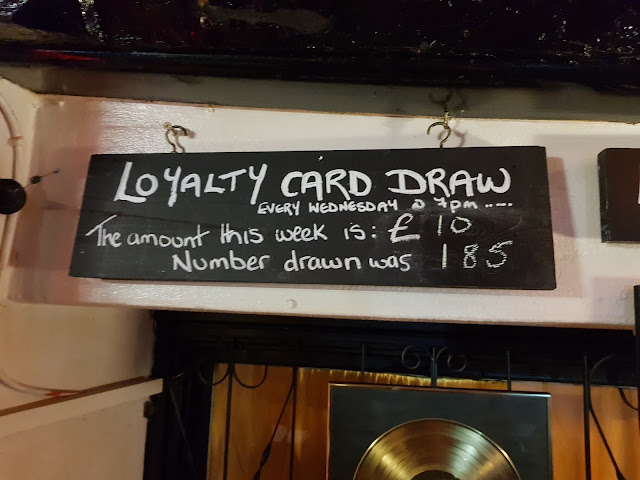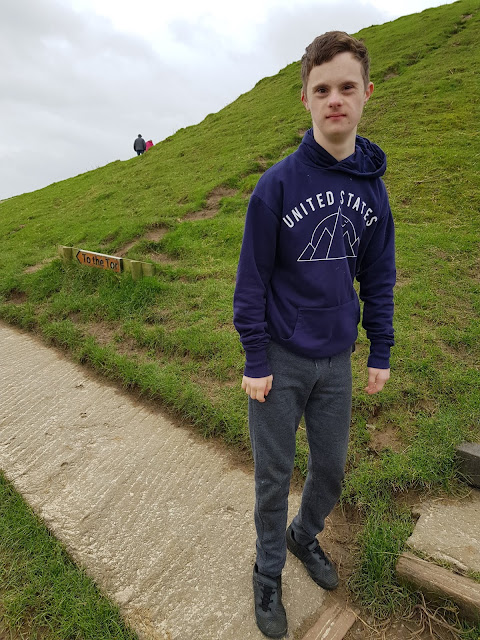Counting (part 1)
His forces are beyond number (Joel 2:11)
I have always loved maths. There, it's out, no hiding it anymore. I am a self-confessed maths lover. I'm not sure how it started, but aged 10 I was taken on by an inspirational maths teacher. He had many faults as a human being, but he loved maths and he inspired a small group of us to love it too. That fact that only the three of us had any real clue what was going on, and that he was, frankly, a bully to the weaker members of the class, slipped past us at that age. On top of this, I'm not even sure that it was good for me to be taught A-level material aged 11. It made the next few years a bit dull. Still I loved it, and I still find numbers fascinating.
So the phrase 'forces beyond number' intrigues me. I understand it as a hyperbole, as even the sand on the sea shore has a number, albeit beyond anyone's wish to count or record, but I find the idea of not counting difficult. I am particularly fascinated by the idea it might actually be wrong to count. You may remember the other sin of David, the census. He counts his people and they are immediately cursed with a three-day plague. The text is too complex for a simple analysis here, as it contains lots of odd ideas about God and causality, but it does suggest that counting is far from being a neutral activity.
The most significant current example is something called QALYs. This is a measure the NHS use to decide how to distribute limited resources. One QALY is one quality-adjusted life year. So if an operation improves your quality of life by 50% (a hip operation for example), then every 2 years you live equals 1 QALY. The NHS estimates that it is worth spending about £30,000 to get provide this one QALY. So, a cancer drug that increases life expectancy by 6 months and costs £60,000 will not get approval. An eye operation that costs £100,000 and improves sight by 50% in an, otherwise healthy, 50 year old, will.
On this system, if the current lockdown saves around 500,000 lives, then it is possible to count how much the NHS should be spending to abide by its own rules. The calculation is a guess as it depends on the age of those who die, but if we assume most deaths will be among the elderly then we get a maximum of about 10 QALYs per person. The calculation is then a simple product of the three numbers and comes out to about £150 billion. Far less than the £350 billion or so it is expected to cost.
If by this point you are feeling a little ill, or a lot irritated, then I have made my point. Counting is not neutral. The very idea that your Dad's life is worth £900,000 and your Granny's is only worth £200,000 is at best creepy and at worst revolting. But this is how those who decide the allocation of resources in the NHS operate every day. The doctors, nurses, radiologists and so on do not think like that. So who is right?
I have always loved maths. There, it's out, no hiding it anymore. I am a self-confessed maths lover. I'm not sure how it started, but aged 10 I was taken on by an inspirational maths teacher. He had many faults as a human being, but he loved maths and he inspired a small group of us to love it too. That fact that only the three of us had any real clue what was going on, and that he was, frankly, a bully to the weaker members of the class, slipped past us at that age. On top of this, I'm not even sure that it was good for me to be taught A-level material aged 11. It made the next few years a bit dull. Still I loved it, and I still find numbers fascinating.
So the phrase 'forces beyond number' intrigues me. I understand it as a hyperbole, as even the sand on the sea shore has a number, albeit beyond anyone's wish to count or record, but I find the idea of not counting difficult. I am particularly fascinated by the idea it might actually be wrong to count. You may remember the other sin of David, the census. He counts his people and they are immediately cursed with a three-day plague. The text is too complex for a simple analysis here, as it contains lots of odd ideas about God and causality, but it does suggest that counting is far from being a neutral activity.
The most significant current example is something called QALYs. This is a measure the NHS use to decide how to distribute limited resources. One QALY is one quality-adjusted life year. So if an operation improves your quality of life by 50% (a hip operation for example), then every 2 years you live equals 1 QALY. The NHS estimates that it is worth spending about £30,000 to get provide this one QALY. So, a cancer drug that increases life expectancy by 6 months and costs £60,000 will not get approval. An eye operation that costs £100,000 and improves sight by 50% in an, otherwise healthy, 50 year old, will.
On this system, if the current lockdown saves around 500,000 lives, then it is possible to count how much the NHS should be spending to abide by its own rules. The calculation is a guess as it depends on the age of those who die, but if we assume most deaths will be among the elderly then we get a maximum of about 10 QALYs per person. The calculation is then a simple product of the three numbers and comes out to about £150 billion. Far less than the £350 billion or so it is expected to cost.
If by this point you are feeling a little ill, or a lot irritated, then I have made my point. Counting is not neutral. The very idea that your Dad's life is worth £900,000 and your Granny's is only worth £200,000 is at best creepy and at worst revolting. But this is how those who decide the allocation of resources in the NHS operate every day. The doctors, nurses, radiologists and so on do not think like that. So who is right?
 |
| The day my number came up at the local pub |



Comments
Post a Comment